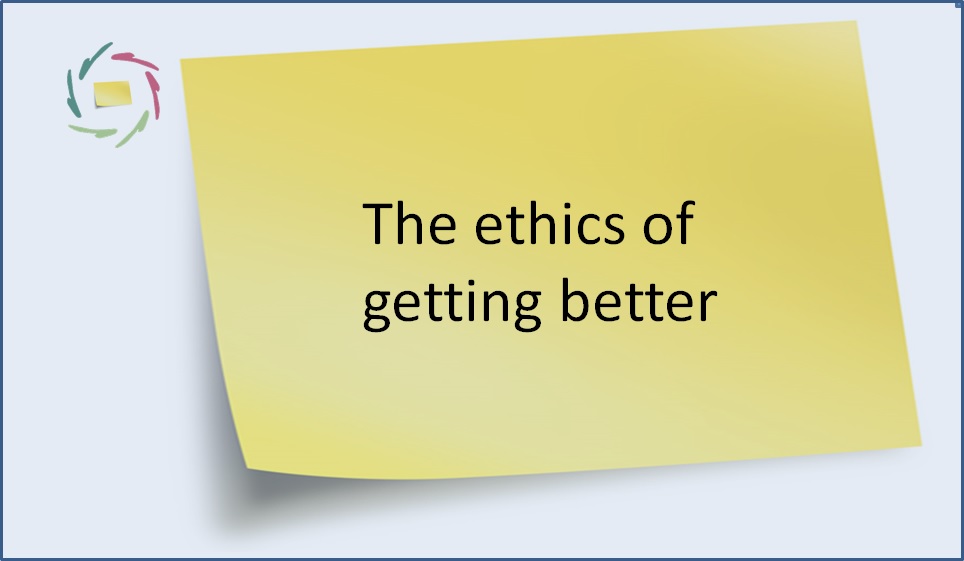21. The ethics of getting better

It’s already present in the terms: ethics is about ‘being good’, ‘getting better’. Medicine, the beloved art and science of ‘making better’, has always been involved in morality though in the last few centuries of Western cultural development, in a very hidden way. In times not so long gone, illness was explicitly seen as ‘curse from God’ (for the bad ones) or ‘challenge by God’ (for the good ones).
◊◊◊
Of course, since the good ones could choose who were the good ones, they were always the good ones.
◊◊◊
In a complete turnover, modern people have somehow become allergic to even a remote possibility of a connection between morality and health / illness. Saying for instance that someone is guilty of his cancer, is not only plainly wrong. It is also reacted against in an almost violent manner. Shimmering through this violence however lies an even heavier load, namely that of the feeling of guilt that is actually not gone at all. It is still there, weighing on a person’s inner mind. People want to push guilt as far away as possible but in the end, it is still present in the center.
◊◊◊
In depth, medicine and morality have not been dissociated, whereas it has been done superficially. This situation creates an enormous tension. People are guilt-ridden up to their bones, where this may well enhance the possibility of developing a bone cancer or leukemia. Indeed: a profound feeling of guilt is a sentiment that has scientifically been related to a heightened possibility of cancer.
◊◊◊
It strikes me that simply and spontaneously getting better, even of a cancer, doesn’t attract the attention it deserves, scientific or otherwise. Being cured in a ‘heroic way’ (such as by surgery + chemo + radiation) seems much more ‘worthwhile’ and simply ‘better’ than being cured ‘just like that’. Apparently, one shouldn’t get better just like that. One should get better ‘in the right way’. This is: the way sanctioned by present-day authority. This is: materialistic medical science. Not submitting oneself to this authority is immediately suspect.
◊◊◊
Even dying is supposed to be done ‘in the right way’, this is: after every possible medical attempt has been made to prolong life. If a dying person refuses this treatment, chances are that he is looked upon with more than a bit of suspicion. It is something ‘not done’. Relatives staying behind have to apologize themselves. The question is posed: was this indeed a moral death?
◊◊◊
To me, here lies a huge responsibility for all of us. It concerns our deepest self, our ‘soul’. The responsibility is in accepting the very sense of responsibility in matters of health, without any feeling of guilt, neither in a superficial way nor in a deep way. This also means having a good contact with one’s deeper self.
◊◊◊
Responsibility lies in the relation of a person with himself and through this, with all other people in the world. Guilt leads to the annihilation of a person’s responsibility, thereby also preventing his very capability of relating to others in a very deep way.
◊◊◊
This is said by someone who knows that at first sight it looks very different.
◊◊◊


